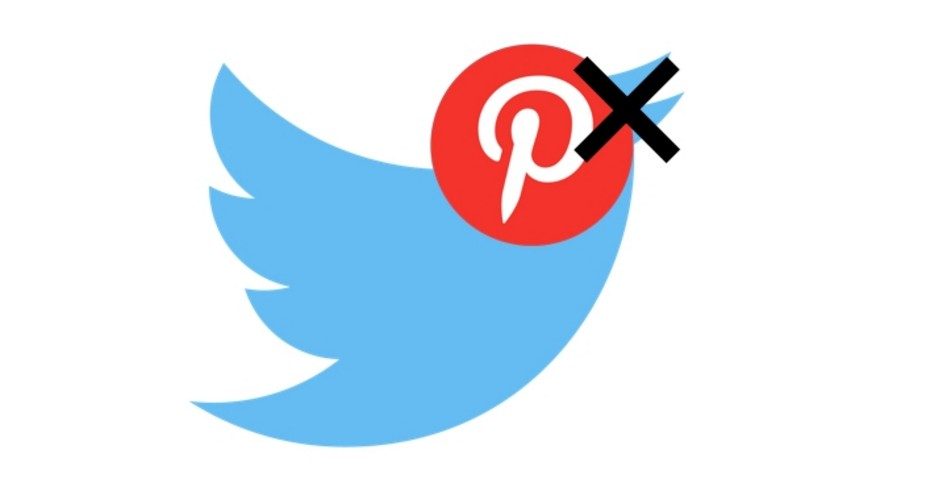
Project Veritas, the investigative journalist organization famous for documenting the nefarious doings of Planned Parenthood, ACORN, and others, has become the latest victim of big tech’s new censorship agenda. James O’Keefe, the head of Project Veritas, announced the organization’s suspension from Twitter in a tweet on his personal account.
“Breaking News: Twitter has decided that investigative journalism is in violation of their terms of service — Project Veritas has been temporarily suspended from posting for tweeting internal communications from Pinterest which shows them calling Ben Shapiro a ‘white supremacist,’” O’Keefe tweeted.
Twitter claims that Project Veritas violated its prohibition against posting other people’s private information. But it wasn’t addresses or phone numbers of Pinterest employees that Project Veritas posted, but internal communications between members of staff relating to conservative pundit Ben Shapiro, as well as other damning communication, which shows that Pinterest has a well-sharpened political ax to grind.
According to those communications, Pinterest has labeled Shapiro, an orthodox Jew, as a “white supremacist.” This information comes from a whistleblower who shared communications on a private Slack channel, which Pinterest uses for intracompany messages.
According to Project Veritas, the whistleblower has been fired.
Documents supplied by the whistleblower show Slack messages, internal policies, and reveal terms, subjects, and websites that Pinterest censors. Among those things which are censored are Christian, pro-life content and the term “Bible.” This image shows the pro-life group LiveAction among a list of blocked pornographic sites. The group was added to the porn-block list by Megan McClellan, Pinterest’s Law Enforcement and Government Operations Manager.
LiveAction.org, a pro-life website, was among others on a “domain block list” enforced by software intended to keep pornographic content off of Pinterest. Lila Rose, the founder of LiveAction, believes that the organization has been censored by social media in the past and thinks all pro-life groups are unfairly targeted by Silicon Valley.
“Pinterest says that their mission is to ‘help empower people to discover things that they love,’ but despite the fact that millions of people love babies and the pro-life cause, they are secretly censoring our life affirming messages. Pinterest users deserve to know the truth and our messages deserve to be treated fairly,” Rose said in a statement.
Shortly after news of Pinterest’s shadow banning of LiveAction became public, the company issued a permanent ban of the pro-life group.
“We don’t allow harmful misinformation on Pinterest,” a message to LiveAction announcing the ban read. “That includes medical misinformation and conspiracies that turn individuals and facilities into targets for harassment or violence.”
Meanwhile, the true purveyor of misinformation when it comes to abortion, Planned Parenthood, remains up and running on Pinterest.
Which brings things back to Twitter and its suspension of Project Veritas. Twitter claims that Project Veritas violated its rules, specifically its privacy rules. “You may not publish or post other people’s private information without their expressed authorization and permission. We also prohibit threatening to expose private information or incentivizing others to do so.”
It’s an anti-doxxing policy, and fair enough. But Project Veritas did not publish private employee information, nor did it threaten to do so. And the information it did publish was already available on-line on their own website. Nobody was about to be “doxed” here. Another story about Silicon Valley censorship was being told, and somebody needed to be punished.
YouTube has jumped on the censorship bandwagon as well, removing a Project Veritas video explaining the situation. That video, and others exposing Silicon Valley’s censorship, can be seen on Project Veritas’ website.
At the same time Project Veritas is being targeted by social media for allegedly breaking privacy rules, Facebook, the godfather of social media, is leaking the information of a private citizen to the Daily Beast in order to dox him for making a video depicting Nancy Pelosi as drunk.
So apparently it’s “do as I say, not as I do” in Silicon Valley.
Much of the current big-tech censorship hubbub revolves around the question of whether outlets such as Facebook, Twitter, YouTube, and the rest should be considered platforms or publishers. A platform is basically akin to the phone company — it doesn’t discriminate against those who use it. A publisher, on the other hand, is subject to libel laws and, therefore, is allowed to edit, remove, or not publish content it deems offensive or otherwise inappropriate.
But Silicon Valley wants it both ways. They want the protection afforded Internet platforms by Section 230 of the Communications Decency Act, but they also want the discretion to remove posts, people, companies, or organizations with whom they disagree.
Since this is still America and we still have the First Amendment, shouldn’t Silicon Valley err on the side of freedom, especially in regard to political debates and journalism?




